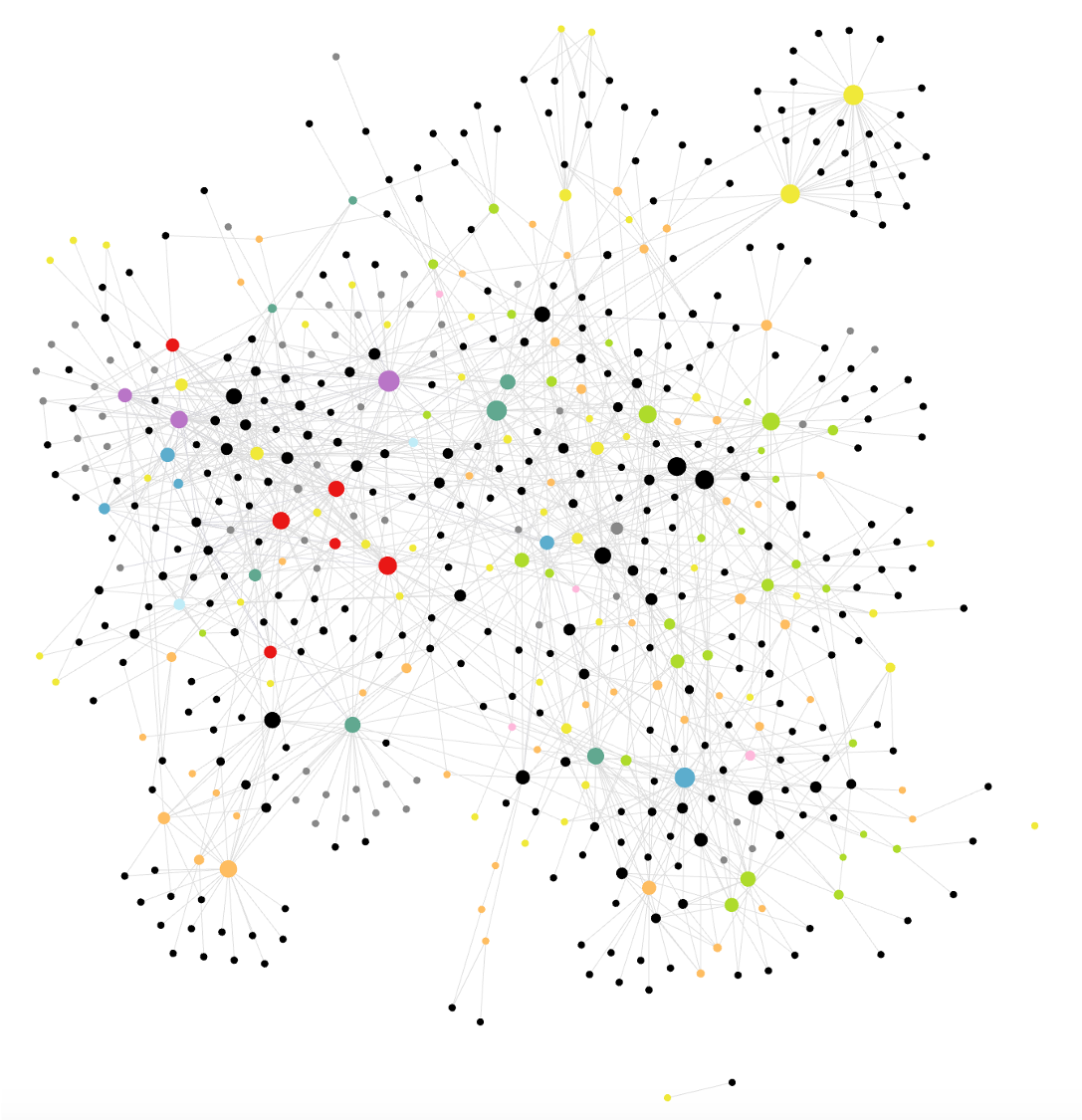We had the pleasure of presenting our project for the first time as a team yesterday at the University of Glasgow’s English Language and Linguistics research seminar – over Zoom, à la mode du pandémie, of course.
It was a fantastic opportunity to share the beginnings of the project with the broader research community – we introduced Richard Whittington, John Carpenter, John Colop and the cohort of mercantile investors in religious books around the Guildhall Library in the first quarter of the fifteenth century. We showcased the methods we’re using to investigate books emerging out of the Guildhall, and how we plan to develop our corpus of texts through palaeographical and codicological analysis. We were able to detail our plans for Meke Reverence and Devocyon for our listeners, and situated the project within its critical contexts, musing on the significance of Reginald Pecock as participant and potential antagonist of the common library efforts.

Visualising connections between manuscripts of the Connolly Group using Obsidian
An interesting discussion arose in the Q&A session about the nature of anthologies, and especially an anthology that purports to give the reader an idea about what it might have been like to read a devotional compilation of the period. We are dealing with a risk that comes with most editing techniques: in creating Meke Reverence we are essentially creating a compilation that never was, a book that of course would not be recognisable to a person living in fifteenth-century England. What are our intentions for this anthology, then?
The structure of Meke Reverence (which you can read about in more detail here) covers the broad thematic interests demonstrated in late medieval English devotional compilations: it gives a sense of the diversity and vitality of religious texts that were in demand by lay people and their ecclesiastic officers. It also emulates the structural conceit that we see in pastoral books circulating in London at the time – they include texts that move from basic pastoral materials to texts designed to enhance spiritual education and conclude with more aspirational theological and devotional treatises – works from authors like Richard Rolle and Walter Hilton, which require careful contemplation and a solid foundation of religious education that the rest of the contents in the book have provided.
We also can’t forget about the materiality of the texts we excerpt in Meke Reverence. To that end, Part Two of the anthology will showcase how our excerpts appear in medieval books through specific case studies, discursive essays and textual profiles. We want to give a sense of how compilers used, edited, corrected and arranged texts, and it is clear we need to be mindful of this as we work through the anthology.
And don’t forget – the contents of Meke Reverence are flexible at this stage: if there are devotional pieces that you think deserve some limelight, let us know your suggestions!
Our thanks to Alison Wiggins, Angela Gayton and Beth Robertson for welcoming us to their seminar – we look forward to that drink in 2023!
